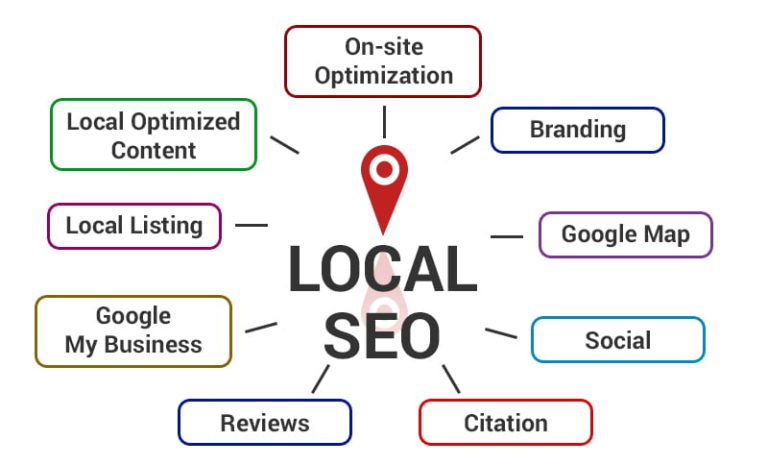Voice Search Optimization Enhance Your Online Presence
Introduction
Voice search optimization means making your website easy to find when people use voice assistants. These Search Helpers are Google Assistant, Siri, Cortana, and Alexa. The goal is to have your website be the answer read aloud by these assistants.
What Is Voice Search Optimization?
Voice Search Optimization (VSO) helps improve your website for voice search. More people are using voice search now. There are over 4.2 billion voice assistants in use today. By 2024, there will be 8.4 billion devices. Businesses need to change their SEO strategies to reach these users. VSO means using long phrases and everyday language in your content. This matches how people talk to virtual assistants. Search engines now understand longer, more natural questions because of better technology like Natural Language Processing (NLP) and AI.
To be good at voice search.
- Make exciting and helpful content that answers common questions in your field.
- Use schema markup and have a table of contents.
- Try to get featured as the top answer because voice assistants often use these results.
- Ensure your website works well on phones and loads fast because many voice searches are done on smartphones.
To do VSO correctly, use question words, talk like you are having a conversation, focus on local SEO, and ensure your site works well on phones. This will help you show up in voice search and find new customers.

Exciting Benefits of Voice Search Optimization for SEO
It makes your website easy for voice search and helps more people find you online. This allows them to trust your website more and makes it easier to use. Making your website ready for voice search has many good points:
More People Can Find You
Your information can be shared by talking computers, which helps more people in your area learn about your business.
People Trust You More
Giving excellent and helpful information through voice search makes people trust your business more.
Easier for People to Use
Making your website work with voice search helps people use it better. This is always good.
Tactics to Improve Your Voice Search Optimization
Research Keywords for Voice Search Optimization
When you are getting your website ready for voice search, it is good to find and use the right keywords. These are some types of keywords you should focus on:
- Long-Tail Keywords: These keywords are very specific and have fewer searches. An example is “ways to edit a PDF.”
- Question Keywords: These keywords start with question words. Examples are “how,” “what,” “why,” “when,” and “where.” For instance, “how to edit a PDF”.
- Conversational Keywords: These keywords sound like how people talk when they use voice search, like How do I edit a PDF?
Tools like the Keyword Magic Tool can help you find these keywords. They show how often people look for them, how hard they are to use, and what people mean when they search.
Analyze Search Results for Target Keywords
Look at the search results on search engines to see what kind of content is ranking for your target voice search keywords. Pay attention to features like featured snippets. People also ask for boxes and local packs because these are common in voice search results.
Audit & Optimize Your Website Content
Before creating new content, check your existing content to find ways to improve it for voice search keywords. A content check means you look at all the content on your website. Here are some excellent ways to make your website content better for voice search:
- Use natural language and match how people talk in voice searches.
- Put voice search keywords in your headers and paragraphs naturally.
- Give clear and short answers to common questions about your business or field.
- Make a section on your site for frequently asked questions to answer voice search questions.
- Use schema markup to tell search engines more about your content.
Improve Your Site’s Technical SEO
To improve your website’s technical SEO, it is essential to ensure that search engines can easily find and understand your site. This helps your website improve in search results, including voice searches. Here are some critical technical SEO tips to focus on.
- Page Speed: Page speed is how fast your website loads. Faster websites are better for people and search engines.
- Mobile Optimization: It makes sure your website works well on all devices. It should be easy to use on smaller screens.
- Secure Connection (HTTPS): Use HTTPS to keep data safe when people visit your site.
- Structured Data (Schema Markup): This helps search engines understand your website better. It can make your site show up more in voice search results.
Practice Local SEO
Local SEO is essential for businesses that serve local customers and want to appear in local voice search results. Voice assistants use local directories like Google My Business, Yelp, and Bing Places to find answers to local questions. Here are some tips to help your business show up better when people use voice search:
- Check Your Business Information: Make sure your business name, address, phone number, and other essential details are correct and up-to-date.
- Use Local Directories: Besides Google My Business, improve your business listings on other local directories related to your business.
- Use Local Keywords: Local keywords in your content to help your business show up in local voice search results.
Continuously Monitor Your Performance
It is essential to check how well your website is doing in search engines and for voice search keywords. Use tools to see your daily rankings and search results and find ways to improve.

Key Features For Voice Search Optimization
- Advanced algorithms for precise voice search optimization
- Enhanced user engagement through improved discoverability
- Data-driven insights for continuous improvement
- Optimization for smart speakers and voice-activated assistants
- Competitive edge in digital marketing
Conclusion
Making your website better for voice search isn’t something you do just once. It is a job that keeps going. You have to keep checking and improving. By doing these six things and checking your website often, you can keep up with what people search for. You’ll appear more in search results, mainly when people use voice search. Following Voice Search Optimization Best Practices, like making excellent content and working well on mobile, can help you get a better place on the list and be seen more. Feel free to share this comprehensive guide to help others improve their voice search optimization efforts.
Frequently Asked Questions (FAQ’s)
Why is Voice Search Optimization important?
More and more users use voice assistants to search online. When you make your website easy to find with voice search, it helps these users find your website easily.
How can I make my website better for voice search?
You can use straightforward language to improve your website for voice search. Answer questions people might ask using voice search. Use natural phrases when people talk.
Is voice search different from regular search?
Yes. Voice search is different from regular search. When people talk, they use more natural words than when they type. You need to change your website to fit what people ask out loud.
How can I check if my website is ready for voice search?
Using a voice assistant, you can check your website by asking standard questions about your business or content. If your website gives clear and straightforward explanations, it is ready for voice search.
Do I need to optimize for voice search if my audience doesn’t use it much?
Yes, optimizing for voice search can still help your website. It improves voice search results, improves your SEO, and makes your content easier for everyone to understand and find.







